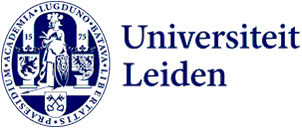
Hester Bijl reappointed as Rector Magnificus
Leiden University’s Rector Magnificus, Professor Hester Bijl, has been reappointed for a second term by the Board of Governors.
The Board of Governors has decided to appoint Hester Bijl for a second four-year term as of 8 February 2025. Before reaching its decision, the Board of Governors sought the advice of the deans and the University Council.
Student well-being and Recognition & Rewards
Chair of the Board of Governors, Ab van der Touw, said, ‘Hester Bijl has achieved a lot in her more than three years in the role of Rector Magnificus. Since her appointment in 2021, she has delivered great results such as creating the Leiden Learning and Innovation Centre (LLInC), improving student well-being and working for the Una Europa European university alliance as well as in areas such as digital education. In the role of Rector Magnificus, she has also taken the topic of Recognition and Rewards to the next level with the Academia in Motion programme, which means there are now concrete plans for a renewed context to recognise the efforts of all academic staff.’
Before she was appointed as Rector Magnificus, Professor Bijl spent four years as Vice-Rector Magnificus where she was responsible for the teaching portfolio on the Executive Board. Since being appointed as Rector Magnificus, she has also been responsible for research, PhD policy and related programmes.
Vision
The Board of Governors is pleased with her performance. ‘She has pushed for further interdisciplinary collaboration between different research and teaching institutes, within and between faculties and within the LDE alliance. She also started an “Academic Freedom” think tank this past year. Professor Bijl is strong at working with the organisation to develop a vision, while also focusing on implementing, monitoring and making any adjustments to plans.’
The Board of Governors sees Hester Bijl as a Rector Magnificus who can continue to build on the course set in recent years in a second term of appointment. ‘She brings innovation and connection and does not shy away from difficult discussions. She is known for her positive approach, also when it comes to sensitive issues. She knows the ins and outs of all her dossiers, which makes her more than able to talk things through with the academic community.’
